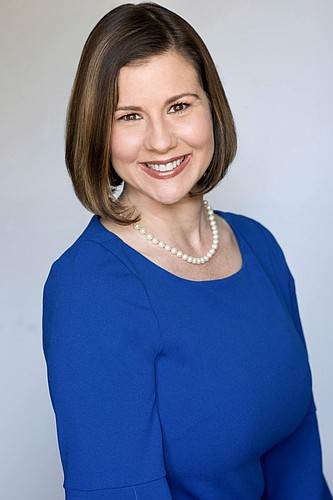
By Brooke Brady • General Magistrate
The Duval County Pre-Trial Detention Facility is the largest inpatient mental health facility in our city. The Mental Health Offender Program hopes to remedy that.
The program is championed by Chief Judge Mark Mahon, City Council member Ronald Salem and Jacksonville Sheriff Mike Williams.
MHOP began as a nine-month pilot program in February 2021. It is a collaboration between the 4th Judicial Circuit, the Jacksonville Sheriff’s Office, the State Attorney’s Office, the Public Defender’s Office, the city of Jacksonville and Sulzbacher.
The goal of the pilot program was to serve 20 participants. This was in response to the burden that mentally ill offenders place on the criminal justice system and the Pre-Trial Detention Facility.
The program focuses on low-level misdemeanants who have a mental health diagnosis and repeated misdemeanor arrests.
Under the previous system, their cases sometimes were dropped and the defendants were transported to a Baker Act facility to be evaluated.
They frequently were held for less than 72 hours and then released back into the community.
The defendants then returned to the environment where they were before being arrested and most were arrested again. It was a vicious cycle that is coming to an end because of the MHOP program.
The primary goal is to break the cycle of repeated misdemeanor arrests for mentally ill people. The participants of MHOP are provided with behavioral health services and all other wraparound support they need to successfully treat their mental illness and reintegrate into the community.
During the first few months of MHOP, it was discovered that we were serving some of the most acutely mentally ill people in our community. Those participants were living their lives unstably, which put their own safety and well-being in danger. Their instability also impacted the community in Duval County.
MHOP allows mentally ill defendants to be released to Sulzbacher where they can be treated, establish benefits with temporary housing and eventually move into permanent supportive housing.
The participants then come back to court and see either Duval County Judge Kelly Eckley-Moulder or me. We check in to see how they are doing, whether they are compliant with the program and what other assistance they may need.
Aside from providing valuable services to the mentally ill, MHOP is saving the citizens of Jacksonville a great deal of money.
In 2020, the city spent $362,218 on the participants of the MHOP pilot program prior to the program being implemented. That figure includes costs from the Jacksonville Sheriff’s Office for booking, daily jail expenses, the Mental Health Resource Center cost and UF Health’s costs, all funded by taxpayers.
Prior to entering the MHOP program, the cost in early 2021 for the participants was $57,548. Since their admission to the program, the cost has decreased to $12,641 for all participants combined.
As of Oct. 1, the end of the MHOP pilot program, there were 15 participants. Unfortunately, one participant passed away and four were noncompliant. There were four graduates of the program.
One of the graduates had 97 arrests in the three years before entering MHOP but has not been arrested since entering the program. He currently is stable and living in permanent supportive housing with full benefits.
Another graduate, a military veteran, entered the program, unable to walk because of an injury he suffered. He has taught himself to walk again, has full benefits and is living in his own home.
The transformation of the men and women in the program has been remarkable. Based on the success of the program, it has been funded for another year.
We are fortunate to live in a city where our leaders realize that jail is not the place for the mentally ill. They have worked together to not only save taxpayers money but to find a more humane and effective way to treat vulnerable citizens of our community.
Brooke Brady is a general magistrate in the 4th Judicial Circuit.